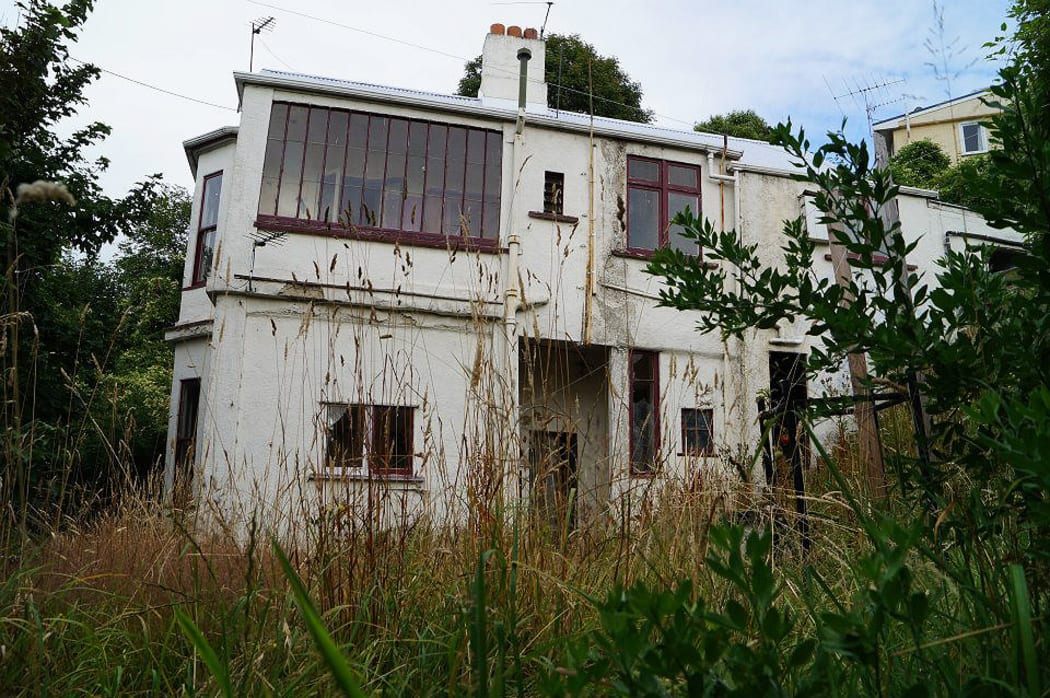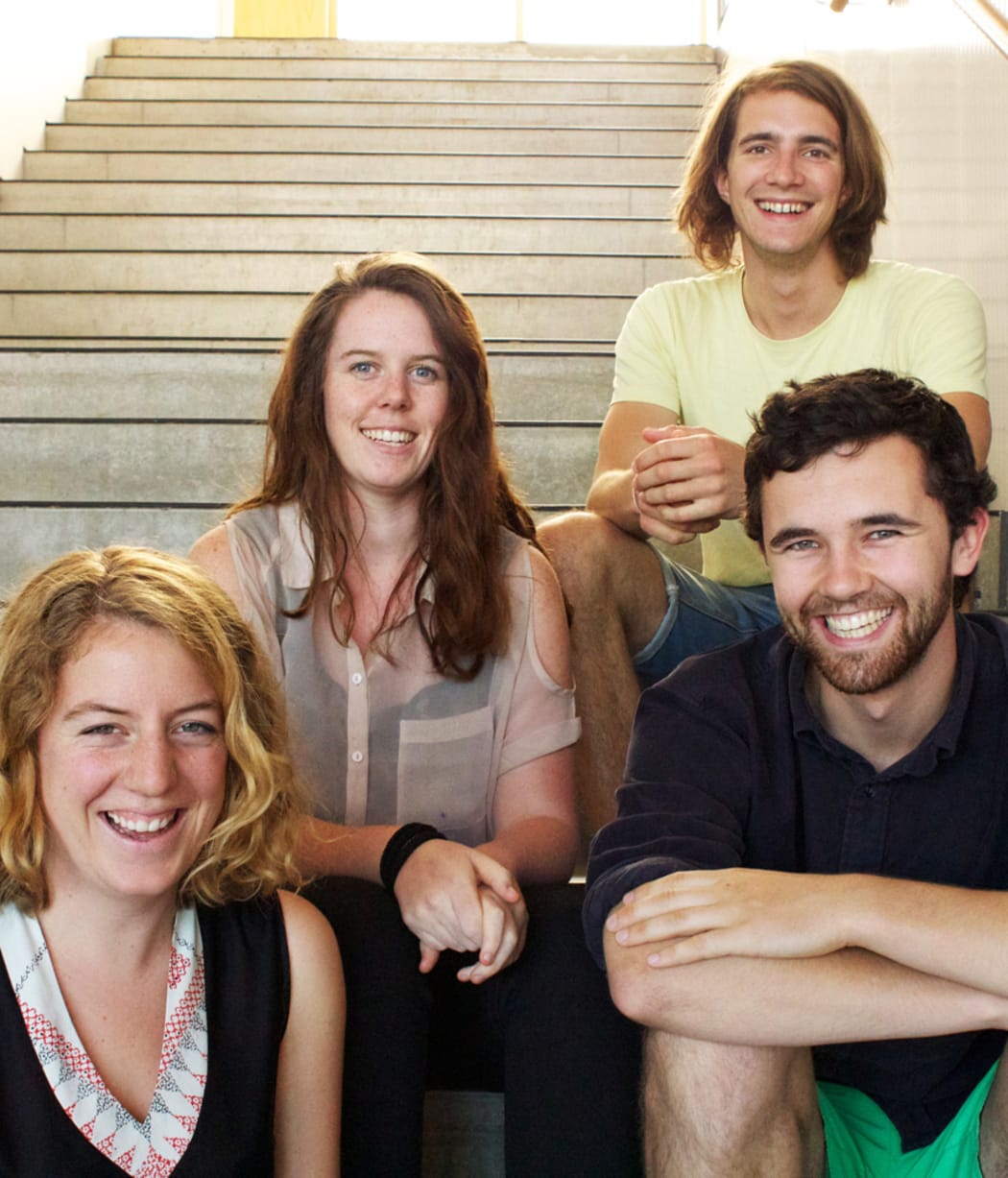Some people see student flatting as an ordeal that benefits those who survive it. I’m not so sure.
I once lived in a sleep-out where a glass of water froze solid beside my bed overnight. When it wasn’t freezing cold, I had to move everything away from the walls because they were so wet. A friend’s dad, a builder, informed me that my room wasn’t built of materials considered adequate for a human dwelling.
Another house I lived in smelt like a chain-smoking wet dog and had holes in the internal walls which were ‘repaired’ with wrapping paper. You won’t catch me rushing to extol the “character-building” virtues of living in these cesspits.
But shut out of home ownership by record-high prices, most young people don’t have any other option than to rent. Latest census figures show that the number of households renting has risen from 388,275 in 2006 to 453,135 in 2013. And yet too many rental properties are cold, draughty, and sometimes simply unfit for human habitation – and with one-year leases the norm and no shortage of potential tenants, there’s little onus on landlords to prioritise costly and often structural repairs.
A group of young Dunedin students are out to change that, with a website that aims to empower tenants in improving their living conditions. Rate My Flat allows tenants to rate their flat across a number of criteria, with the results posted in an online database for anyone to see.
Lindsey Horne, the initiative’s marketing director, calls it a “data-gathering site that can create a mandate for change”. She and the rest of the team – Leander Schulz, Letisha Nicholas, and Cade Bedford – are all Dunedin students in their early 20s, and know all too well the potential perils of flat life. Their efforts to renovate one of the worst flats in Dunedin brought them widespread media coverage. The ‘Shit Show Chateau’ has been subject to a long-term improvement process aimed at making it energy efficient, warm, and even structurally sound.
READ more about the group’s work with the Shit Show Chateau.
But the process has not been an easy one, and with help from social-enterprise incubator programme Live The Dream, the flatties decided to create Rate My Flat as a more accessible path to improving the quality of rental housing. The site aims to help other tenants potentially improve their flats, or make more informed decisions when choosing a flat, without having to go through the whole Chateau process themselves. Now in their second year at the Chateau, which Horne tells me is “a very long lease” by Dunedin standards, the team hope to make faster and easier improvements possible for other students.

A lot of work has gone into turning the "Shit Show Chateau" into a warm, energy efficient and structurally sound place to live. Photo: Supplied
Rate My Flat asks you to score your flat according to a number of categories including price, warmth, landlord relationship, sunlight and more. Some of the options are on a scale, including how soundproof your flat is on a scale from “I know when anyone in the house has sex” to “My room could be a recording studio”. Horne says the categories were decided on after “lots of surveys, lots of talking to people”, soundproofing and shower pressure being two areas that Dunedin students cared more about than she’d realised.
The aim of the project is to create “social and environmental outcomes”, not to antagonise landlords, says Horne: “No one wants a site that’s just one big rant.” While she expects there to be “mixed reactions... the site is going to be great for landlords who do have a well-maintained property”. “If you are a landlord who gets a poor rating, the incentive is there to improve,” says Horne – plus the site is designed so as to easily reflect improvements like the installation of a heat pump.
Otago Property Investors Association president Wendy Bowman says that, while defamation and the potential for unfair ratings do concern her group, the idea of an open dialogue with tenants definitely appeals. Most landlords welcome feedback from their tenants, but do not often get it until it’s too late, she says. “Because there are people living in it and we don’t really go and intrude, it’s only at the end of the year when the tenants are gone and the property is empty that you find out there might be some problems.”
Most of the landlords she knows have insulated their properties where possible, and property management companies will not take on a property that’s not properly insulated. But she says that “every house in Dunedin is cold in winter. It doesn’t matter if it’s double glazed or whatever.” She has anecdotal evidence of students agreeing on a certain amount to pay for power for the month, but “once that money is gone the tenants won’t use any heating”.

The Rate My Flat team (l-r) Lindsey Horne, Letisha Nicholas, Leander Schulz and Cade Bedford. Photo: Supplied
But it’s obvious that a poorly insulated and draughty house is more expensive to heat, and a leaking roof will let in moisture – these properties are simply not easy to live in. The Green Party’s Warrant of Fitness would create a legal standard for rental properties, addressing issues of sub-standard accommodation and unhealthy dwellings.
Other WOF-type schemes for rental housing have also been proposed, including another Otago-based trial led by New Zealand Centre for Sustainable Cities director Philippa Howden-Chapman, with whom the Rate My Flat team consulted for their own project. These schemes could go a long way towards making renting more sustainable and healthy, while an expanded Rate My Flat would allow a new generation of tenants to communicate with each other and their landlords about the condition of their properties.
Currently Rate My Flat is focussed on North Dunedin, home to “the oldest, coldest and mouldiest flats, and a really high proportion of uninformed tenants”, says Horne. Few students hold onto their leases for longer than a year, which she sees as part of the problem: there’s no incentive for landlords to improve their properties “because they know they’ll get a fresh batch of uninformed students in the next year”. (That transience is corroborated in census data that shows, in general, people who don’t own their own homes are more mobile because of “often limited” rental tenancy arrangements.)
READ about what renters should know about insurance.
A recent NZIER report backs up Horne’s statement that the law tends to favour landlords over tenants. It shows that countries with a longer history of high renting numbers have more laws that protect tenants (such as around termination of lease, notice periods and alterations) than we have in New Zealand. Though Horne’s group are driven partially by ecological concerns, saying that “it’s common sense to move towards energy efficient solutions”, she also lists health and social justice as other key elements that people have responded positively to.
Had Rate My Flat existed two years ago, work on the Shit Show Chateau might’ve have been much easier. Horne says the renovations are finally almost finished, repairs giving way to improvements such as the installation of solar power, courtesy of Canterbury Power Solutions. Most importantly, they’re “finally painting all the graffiti dicks off the walls”. They hope to pass on the project to a group of students willing to build on the progress they’ve made. At least with Rate My Flat, they’ll know what they’re getting themselves into.
This content is brought to you with funding assistance from New Zealand On Air.

